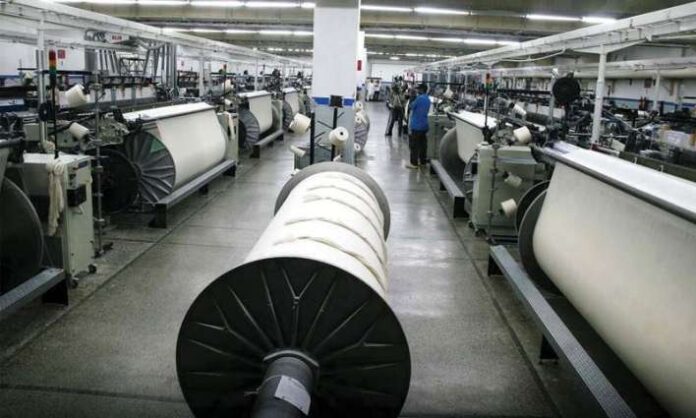LAHORE: The textile millers are not happy with the government’s decision to allow only opening of industrial units with confirmed export orders and urged the government on Saturday to allow indirect exporters (the entire supply chain) to resume operations along with the industrial units to complete export orders.
Talking to Pakistan Today, Ahsan Bashir, a leading textile miller from Lahore, said that unlike other countries of the world the supply chain in Pakistan is not integrated and it is segregated. In Pakistan if someone is making yarn, the others are making other raw materials, he added.
“So, if the government allows only those industrial units with confirmed export orders they would still not be able to meet orders or operate as they would not be getting yarn or other essential raw materials because the complete supply chain will not be operational that’s why it is important to allow the complete supply chain to resume business.”
Bashir explained, “For example if the government asks me (indirect exporter) for Letter of Credit (LC) of an export order I would not be able to present that but the industrial unit with LC needs raw material from us that is why it is important to allow complete supply chain to resume operations. Naveed Gulzar, a leading textile miller from Faisalabad, said that the industry needs to be opened gradually and this facility should be available to indirect exporters as well.
“If some indirect exporter has some order he should also be allowed as without raw material and accessories suppliers, even the direct exporter with confirmed export orders cannot fulfil their commitment,” Gulzar said. The complete supply chain must be allowed to operate and markets could be time specific for e.g.10am to 5pm, he said.
Agreeing with them, All Pakistan Textile Mills Association’s (APTMA) patron-in-chief Gohar Ejaz said that all major buyers in Europe and United States of America (USA) have stopped shipments and only small orders for special needs are being processed.
“It is not possible to operate in lockdown till the complete supply chain is operational,” Ejaz said. The patron-in-chief added that he does not see textile exports of more than $200 million in April against the monthly average of $1.2 billion.
APTMA Punjab’s Vice Chairman Aamir Sheikh said that if the export orders are going to reduce by 50 percent that automatically means 50 percent of the textile labour force will lose jobs. Sheikh added that the government must look at the textile sector as the job generator in addition to dollar earners and also facilitate the domestic sales of textiles during the crisis period. “This means banning import of textiles and second-hand clothing etc and removing conditions like computerised National Identity Card (CNIC) which is required from all buyers for sale of above 50,000 which they refuse to give,” the vice chairman held.
He demanded that all restrictions and documentation requirements must be suspended till June 30. “In this way all textile mills could remain open without laying off anyone if domestic trade is facilitated. They can target the 220 million local population in this way,” Sheikh maintained.
As per details, in a recent meeting of National Command and Control Centre (NCOC) it was decided that the Ministry of Commerce (MoC) will hold consultations with all the provinces for finalising the procedure for opening of the industrial units with confirmed export orders, and present its final proposal to the NCOC today.
The MoC made a presentation on steps taken so far in the mindset of coronavirus pandemic to address issues of industries and opening of industrial units with confirmed export orders.
The MoC proposed the procedures for considering applications of the industrial units with confirmed export orders for exemption from the lockdown.
“Any such industries may apply either to the Deputy Commissioner of the district in which the industry is situated or to the regional office of the Trade and Development Authority of Pakistan (TDAP),” MoC proposed.
The MoC added that the applicant will include the documents including LC of confirmed orders, proforma invoice of confirmed orders, confirmed purchase orders and undertaking on stamp paper of Rs100 from the exporter that the product will not be sold in the domestic and mentioned order is a bonafide as proof of the confirmed export order.
The MoC maintained that the focal person of TDAP will examine and give his opinion to the focal person of the DC office concerned by the same means of communication, within 24 hours, whereby the district administration may take a decision on the application.
“Where applications are received by MoC/TDAP, the same will be forwarded to the provincial focal person for further necessary action as outlined above,” the MoC stated.




